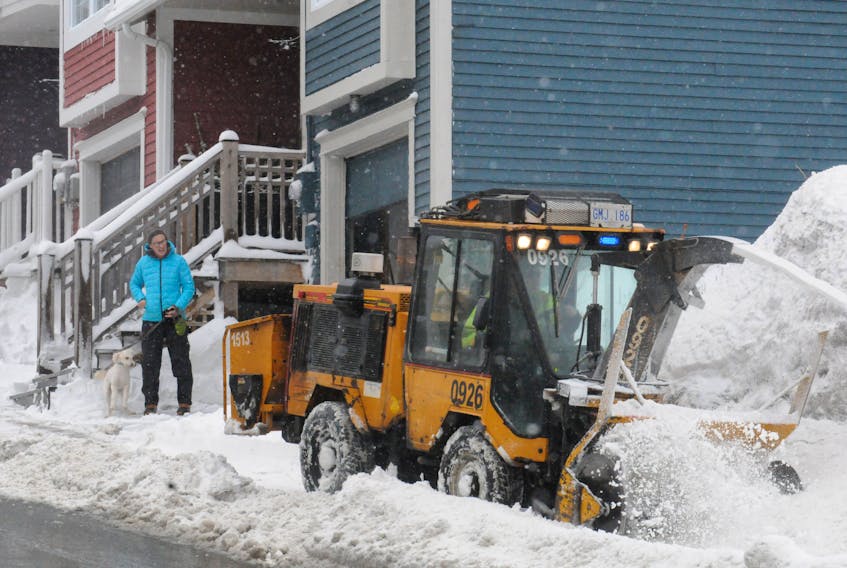ST. JOHN'S, N.L. — In order to improve snowclearing that’s done on higher-priority laneways and stairs in St. John’s, council unanimously decided on Monday to discontinue the service for 13 different areas in the city.
These include the steps at Poplar Avenue to Chestnut Place; Long Pond Road; Dartmouth Place; Winter Avenue to Glenridge Crescent; Quidi Vidi Road to Empire Avenue; Field Street; Bishop’s Cove; Brennan Street; Goodview Street; Clifford Street; Cabot Street and Hamilton Avenue, as well as the laneway at Top Battery Road.
The areas were chosen for a variety of reasons specific to each site. For example, in some cases the steps weren’t connected to a cleared sidewalk route and only provided access to a snow-covered area.
Deputy Mayor Sheilagh O’Leary said one contentious issue over the years has been how to improve laneway snowclearing, especially in high-traffic areas.
“As much as we don't want to decommission areas, but certainly this list is a good rendition of areas that actually do not require … snowclearing because they don’t lead anywhere. And it’s about realignment, about realigning our resources into areas that really have a much higher priority.”
O’Leary said it will be a transition for some people, but the areas in need of more accessibility will be served better.









